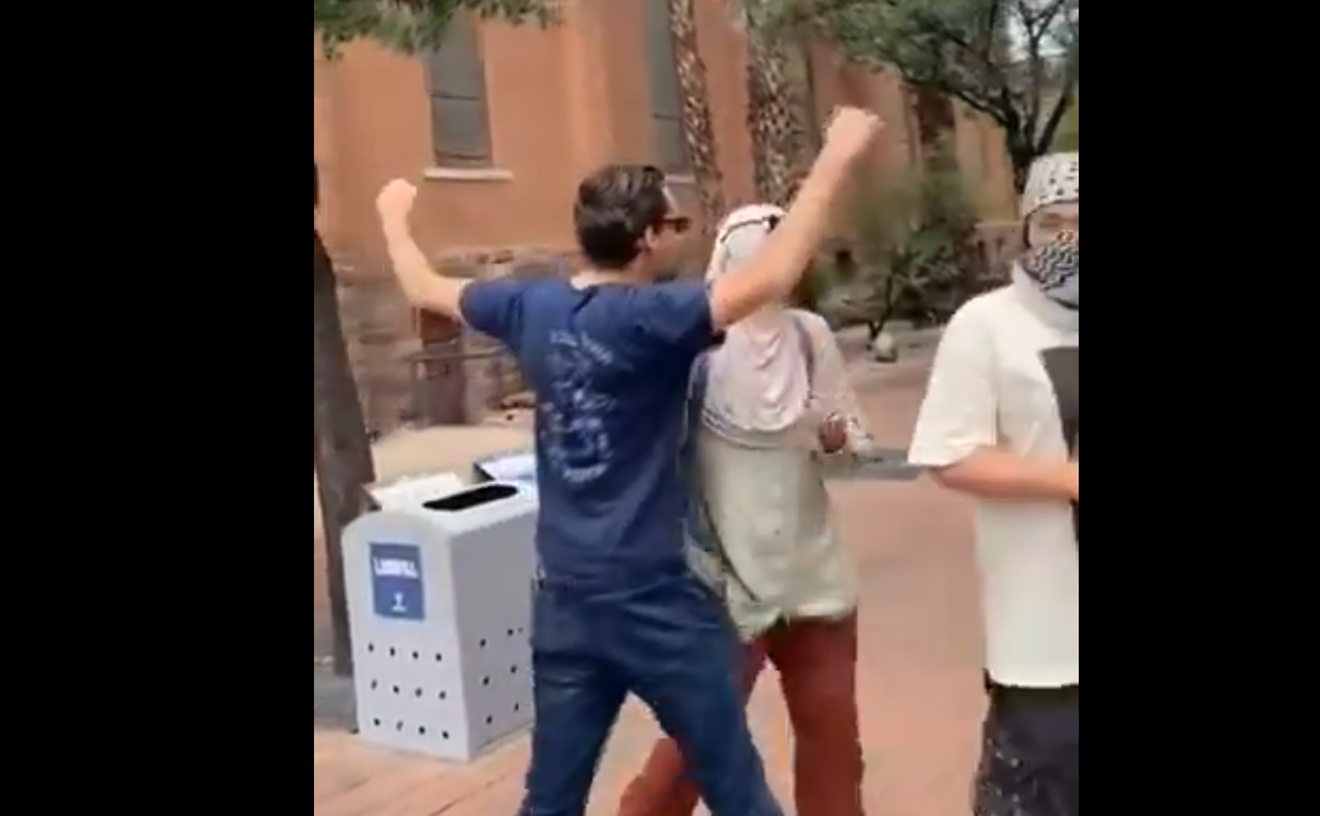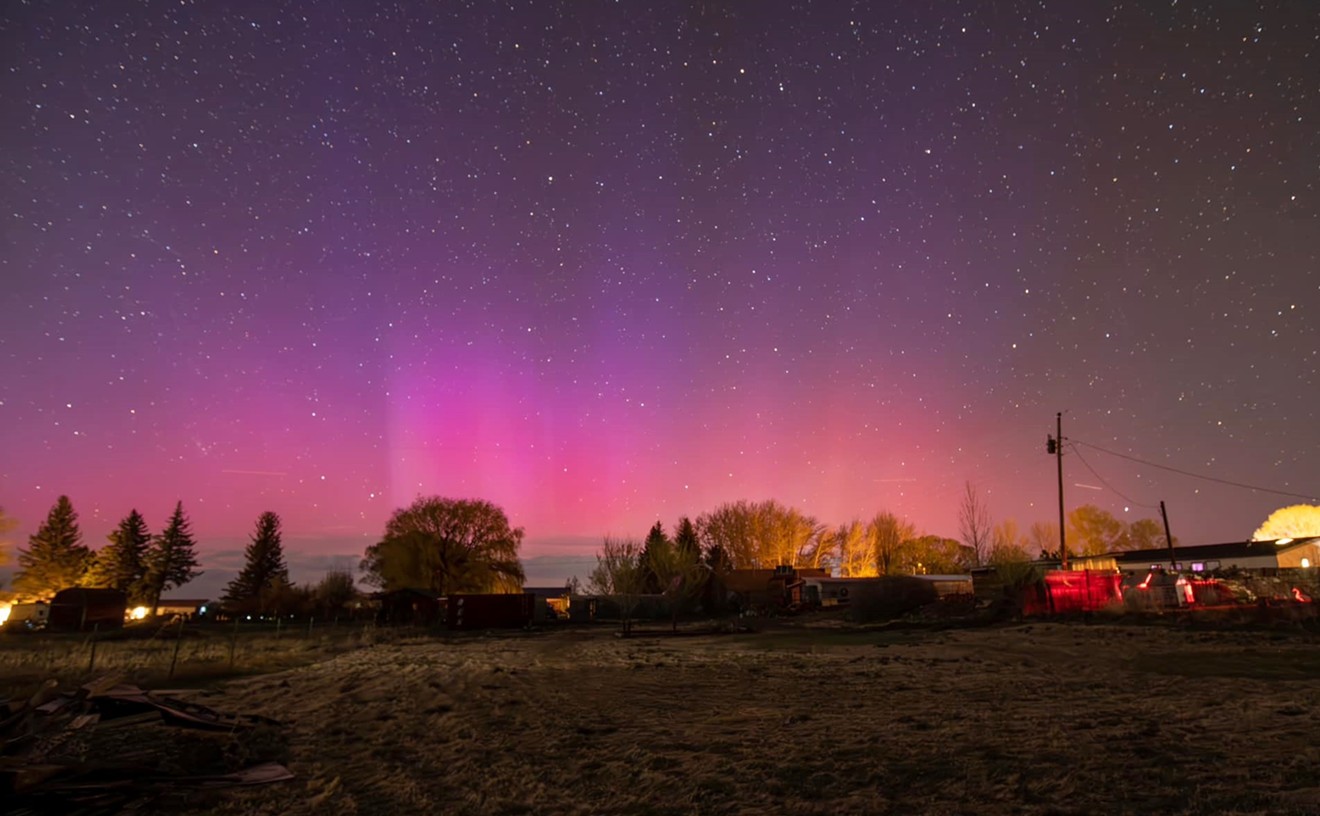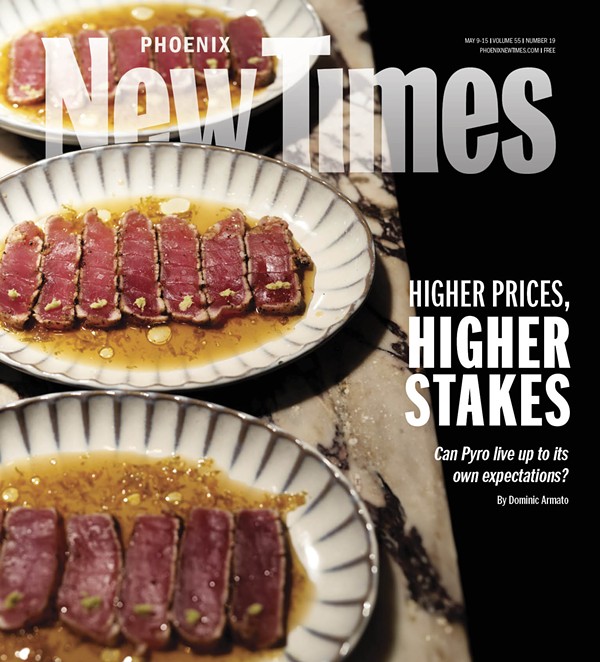That's understandable. No matter its brilliance, the film's pallor of rural white trash dysfunction was probably too unsettling for that cash-cow megaplex demographic.
After all, it was, as the Sunday Herald in Scotland recently said for the film's home-movie debut, set in a "small hick town called Falls City," a "place where bumper surfing and cheap highs are the main form of excitement," a place where cross-dressing Teena Brandon could show up and be "the closest thing to exotic the dead-end residents of Falls City have ever encountered."
It is, as another reviewer stated, about the wrenching ennui of living life "in the Nebraska of the soul." It is the numbing oppression of a "dead-end, redneck town," another home-movie reviewer said last week.
Boys Don't Cry is one of those bitter sociology pills like Germinal or Gulag Archipelago. It viscerally repulses like a two-hour tape loop of Ned Beatty squealing like a pig. It is, we soon learn, a place to be avoided at all costs.
So who the hell would pay eight bucks to be taken to hell for two hours?
Millions more of us, though, will probably pick up the movie in video stores. The equation changes -- the value of witnessing several great performances in your own home is greater than a downer plus three bucks. In this format, thousands in Phoenix and millions more around the world will be willing to stomach the hell that is Falls City, Nebraska.
I've also avoided the movie because of its bleakness. But I wasn't avoiding the pain of seeing a human cesspool. I was avoiding the pain of seeing my human cesspool.
Or, more likely, the pain of seeing a place I love depicted as a human cesspool. Or, perhaps, the pain of realizing everybody in the world is finding out I am the effluent of a human cesspool. Or, perhaps, the pain of confronting the fact that people you love, including your mother and father, just had the home they love forever branded on the international stage as the archetype of human cesspools.
My pain is a cesspool of ambivalence.
I grew up in Falls City. I've rooted for the Falls City Tigers ever since I could root. Falls City, population 4,600 and dropping, is the stage and backdrop of all my formative memories. It is the one place I most identify as home.
My great-great-great-grandparents were the first permanent residents of the town. They were firebrand Wesleyan Methodists who came to that spot to establish a station house along the Underground Railroad. According to many dead and hopelessly unreliable sources, my great-great-great-grandmother once held off slave traders with a pot of boiling water. That may be a tidbit of apocrypha about a small percentage of my bloodline, but I hold it as dear as others hold the perceived royalty of their blood.
As a writer, I'm peeved by the lack of dysfunction in my upbringing. My parents were nurturing and supportive. Besides the occasional bully or white-trash drunk or ineffectual teacher, my village watched over me and educated me and guided me and, as far as I could tell, actually cared about me. I wish I had some of Frank McCourt's abject Irish-style suffering, but instead I got a maudlin Providence backstory.
And I was by no means the darling. I was a crappy athlete and weak and skinny and pretty much a strange little somewhat effeminate punk rocker with a twisted sense of humor and the wuss-bag hobbies of golfing, running, reading, singing and collecting pop cans. I probably looked something like an ugly, awkward Brandon Teena. But even at my most stridently odd, I never felt too far out of the loop.
And really, my girlfriend was sweet and bright with good teeth and she had a future and she knew the difference between a penis and a sock and her goal in life wasn't to get knocked up by me so she could have a little doll that would validate her and give her the love she didn't get from her ineffectual Valiumed mom and drunken pedophile dad. And I was not an abusive mate and am not, as far as I or the authorities can tell, a sociopath. And I promise you: If I killed you, I would not throw the murder weapon onto a frozen river.
John Lotter and Marvin Nissen are not Falls City. They are aberrations in Falls City, just as they would be in any community in the world.
In fact, this crime first gained national exposure because it was such an aberration. Shocking crime rocks sleepy Midwestern town. In Cold Blood revisited. But then somehow it became indicative and metaphorical. God help you if you ever become someone's metaphor.
I am not a total loser. Falls City is not a human cesspool. "I don't. I don't. I don't hate it. I don't hate it." Absolve, absolve.
And now, that sigh of resignation. As we've all learned from the writings of the disparaged, there's nothing more pathetic than a homer trying to defend the honor of his home. How strange and uncomfortable to become a Falls City apologist.
Let me rephrase all this. John Lotter is an aberration, but he is also the product of a culture that does exist in Falls City and much of the rural Midwest. He is a product of a pocket in the rural white underclass that has festered and swollen ever since the first bright kid who could leave did leave.
I had to leave, and I was only 16th in a class of 63. My friends left. In theory, this breaks my heart. In theory, I've betrayed my people.
In reality, in this age, you must leave an isolated Midwestern town of 5,000 with no college and no high-tech industry if you want to succeed and experience what the world has told you is life. As far as I can tell, this is the story of half the under-40 expatriates who make up the population of Phoenix.
Indeed, if you roll into Falls City on a Friday night and take a cruise down Harlan Street, disregarding the high school kids, you will find many of the few warm bodies in their 20s and early 30s immersed in a world of the shiftless and bored and mediocre and broken and dispossessed.
I spent much of my college summers back in Falls City at keggers with guys like John Lotter and Marvin Nissen. Those sweaty evenings held a very strange edgy energy. I figure it was the energy of youth and the promise of Friday night and the liberation of a good buzz bashing up against the reality of an empty keg on a dark muddy beach after everything within 100 miles had closed. This was, as we called it, "fuck or fight time." Every regret in Falls City was born of this hour.
Kimberly Peirce set her movie in this time, and the mood she created does exist. It is the only legitimate setting for her film and its subject matter. It explains both her protagonists and antagonists. Artistically, she had to do it.
My beef, then, isn't with her or the movie or with the equally brilliant documentary The Brandon Teena Story, or with John Gregory Dunne's astute New Yorker essay, or even with Aphrodite Jones' accidentally hilarious book All She Wanted.
It is with a passive non-foe -- the nature of cinematic art. Plots must be streamlined. A unified sense of place must be established. The necessity of dramatic effect tramples the subtlety and complexity of reality but, in doing so, portrays a more powerful emotional reality.
And this, of course, is a problem only when this dramatic effect is trampling people and places that are real.
Out of that comes the commentary on film. Reviewers have a job to do -- they must squeeze descriptions into two or three paragraphs. This ain't a travel piece; it's telling the reader what this movie is about in a nutshell.
And in this case, the nutshell holds "Falls City -- hick town where dead-end residents live." It is killing as the bombardier kills -- anonymously and without any direct human-to-human malice.
So a young man feels compelled to boot up, rally 'round the family, raise the Jolly Roger. You talkin' to me? My name is Don Quixote de la Falls City. You have betrayed me; you have dishonored my family. Prepare to die.
Ultimately, the worst part of all this is that I've taken umbrage at all. Lighten up, Francis; your umbrage reeks of false pride. And I'm disturbed because it's the same false pride that fuels so many explosions of violence.
And it's a false pride I picked up on a late Friday night in Falls City. Boys Don't Cry. Boys Fight.
But, then again, I also learned to hate false pride in Falls City. On Sunday, I learned to turn the other cheek, do unto others. If that was too holy for my mood, I learned on Monday to measure the cost/benefit expediency of retribution.
It was a marketplace of ideas, not the half-empty vending machine of the small-town stereotype.
So, in what I hope is a reaction that will honor my home, I plan to remain ambivalent toward Boys Don't Cry.
And, for some of the same reasons, I will always remain ambivalent toward my hometown. Because of the Falls City you see in the movie, I can never go home. But because of the Falls City you don't see in the movie, I will always long to go home.
It's an ambivalence suffered by many of those who leave their small-town home. And, for me, at least, this ambivalence is the most painful part of calling a small town your home.










